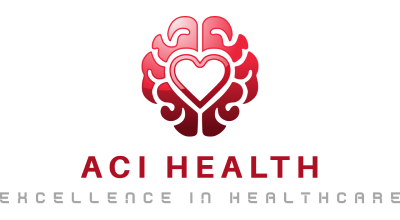Onboarding and Training Services
ACI Health’s Onboarding and training in healthcare are critical components for ensuring that new employees are effectively integrated into the organization and prepared to provide high-quality patient care. Here are some common offerings under onboarding and training in the healthcare sector.

Orientation Programs
- Comprehensive orientation sessions for new employees to familiarize them with the organization’s culture, policies, procedures, and values.
- Introduction to key personnel and departments, including human resources, compliance, and clinical leadership.
Clinical Training
- Structured training for clinical staff (e.g., nurses, physicians, allied health professionals) on specific procedures, protocols, and technologies used in the organization.
- Hands-on training and simulation exercises to practice clinical skills in a safe environment.
Compliance Training
- Mandatory training on regulatory standards, such as HIPAA, OSHA, and other legal requirements to ensure staff understands their responsibilities regarding patient privacy and safety.
- Education on organizational policies related to ethical practices and compliance issues.
Technology Training
- Training on the use of electronic health record (EHR) systems, telehealth platforms, and other healthcare technologies that employees will use in their roles.
- Ongoing training and support as new technologies are implemented or upgraded.
Soft Skills Training
- Development of communication, teamwork, and interpersonal skills that are essential for effective patient interactions and collaboration among healthcare teams.
- Conflict resolution and emotional intelligence training to enhance workplace dynamics and patient care.
Customer Service Training
- Training focused on improving patient engagement, satisfaction, and overall experience, emphasizing compassionate care and effective communication.
- Techniques for managing difficult situations and addressing patient concerns.


Policy and Procedure Training
- Instruction on organizational policies and standard operating procedures that staff must follow to ensure consistent and high-quality care.
- Training related to specific departmental protocols (e.g., infection control, emergency procedures).
Mentorship Programs
- Pairing new employees with experienced mentors to provide guidance, support, and knowledge sharing during the initial employment period.
- Facilitating professional development and fostering a culture of continuous learning.
Simulation Training
- Use of simulation-based learning environments to prepare healthcare professionals for real-life scenarios, improving critical thinking and decision-making skills.
- Interdisciplinary simulation training to promote teamwork among various healthcare professionals.
Continuous Education and Development
- Opportunities for ongoing education, such as workshops, seminars, and e-learning modules, to keep staff updated on the latest healthcare practices, technologies, and research.
- Encouragement of professional certifications and advanced training for career advancement.
Feedback and Assessment
- Regular assessments to evaluate the effectiveness of training programs and onboarded staff’s readiness, including competency checks and performance evaluations.
- Continuous feedback mechanisms to help refine training programs and address areas for improvement.


